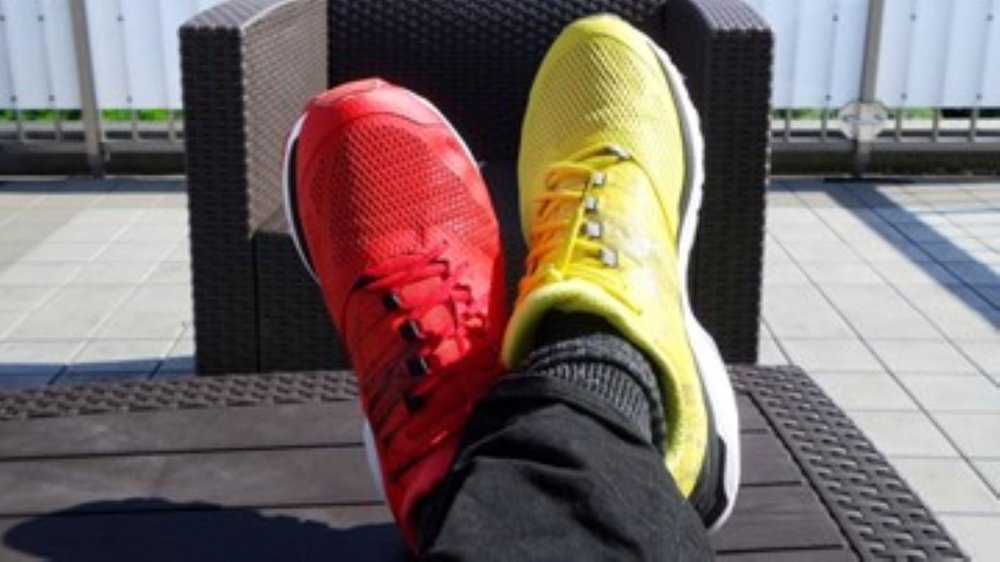With all the attention being paid to the differences between learners and the need for differentiation, it is also important to remember that intra-learner variability can be just as perplexing as inter-learner variability, especially for the learners involved.
It is easy to oversimplify what students bring to the learning process. This is an A student. There is a B student. One is a strong learner. Another is a weak learner. He is bright. She is slow. They are lagging, etc.
Few learners are that consistent. If there is a truly average student, I’ll bet he or she has never been in one of your classrooms!
When I was in high school, I had a strong aptitude for language. Learning a new language was comparatively easy for me. But put me out on the sports field and it was another story. I have poor depth perception. I failed the practical test in archery (getting a C for the term because I got an A on the written test). And playing softball or tennis – with those balls moving toward me at a speed I couldn’t gauge – required incredibly intense effort (and luck!). But I found another outlet for athletic endeavor and that was dance.
I was fortunate. I was able to understand better than most why learning experiences were so different.
In The End of Average, Todd Rose brings home the idea that each individual brings strengths and weaknesses to every academic experience (and, indeed, every life experience). If I have strong perceptual skills and weak memory skills, my experiences in the classroom will be very different from a student with weak perceptual skills and strong memory skills. But it may not be obvious why.
In fact, uneven cognitive skills can be just as stressful, sometimes more so, for a student than having more consistent but less strong learning skills.
When a student has really strong skills in some areas and weaknesses in other areas but doesn’t know what they are or what the likely impact is, some learning experiences will be easy and some will be difficult, but the student usually can’t predict which will be which! Inexplicably, some things will be easy, and some will be hard. Some types of math problems will be obvious and others totally obtuse (pun intended). Some language tasks will be super hard, but others will flow like the rain off a duck.
These students typically experience a lot of frustration and anxiety. Teachers and parents may tell them, “Come on, you’re so smart. You should get this.”
Let’s take one cognitive skill as an example – cognitive flexibility (or flexible thinking). This skill is essential in determining when we need to change our approach to a problem, but also in shifting between mental processes.
Say you have a student who reads amazingly fluently, but stumbles when they come to a word they have never seen. And who can power through any math problem you given them until they get to one where all the operations and solution approaches, they have learned don’t apply. For this student, these challenges will probably seem “unfair.” They are used to succeeding in most reading situations and most math situations, but suddenly both are perplexing.
While there may be a common underlying cognitive processing reason for this difference (in this case, cognitive flexibility), it is not obvious to the student – nor to their teachers – and that often causes him or her to doubt their ability altogether. Every learning situation brings uncertainty and, therefore, stress. Success seems like a matter of luck rather that something to which effort and strategies can be applied.
Now imagine that this student can be helped to understand the relative weakness of their cognitive flexibility (compared to memory, attention, and reasoning skills). Imagine that that student now has tools to strengthen their cognitive flexibility and strategies to compensate while they are building weaker skills.
Now learning situations will be less unpredictable and certainly less stressful. And talk about students taking responsibility for their own learning!
About the authors

Betsy Hill is President of BrainWare Learning Company, a company that builds learning capacity through the practical application of neuroscience. She is an experienced educator and has studied the connection between neuroscience and education with Dr. Patricia Wolfe (author of Brain Matters) and other experts. She is a former chair of the board of trustees at Chicago State University and teaches strategic thinking in the MBA program at Lake Forest Graduate School of Management. She holds a Master of Arts in Teaching and an MBA from Northwestern University.

Roger Stark is Co-founder and CEO of BrainWare Learning Company. For the last decade, Stark championed the effort to bring comprehensive cognitive literacy skills training and cognitive assessment within reach of everyone. It started with a very basic question: What do we know about the brain? From that initial question, he pioneered the effort to build an effective and affordable cognitive literacy skills training tool based on over 50 years of trial & error clinical collaboration. Stark also led the team that developed BrainWare SAFARI, which has become the most researched comprehensive, integrated cognitive literacy training tool delivered online in the world. Follow BrainWare Learning on Twitter @BrainWareSafari











